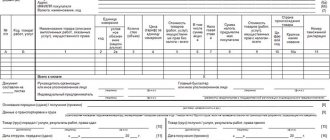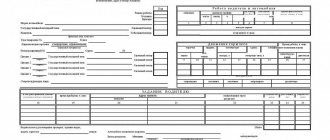According to the Labor Code of the Russian Federation, weekly rest is given to every employee. It is at least 2 days in a five-day working week and one in a six-day week. By law, rest must be at least 42 hours weekly. Additional work on weekends must be paid double.
Most often, Sunday is a day off. The second free day is regulated by a collective agreement or internal regulations of the organization. As a rule, with a work week consisting of 5 days, 2 days off follow each other. With a shift work schedule, days off are also determined by internal regulations and can be provided on weekdays. In what cases are additional days off allowed? Let's figure it out.
Weekend work
Working on official weekends in the organization is prohibited by the Labor Code. There are certain rules. It is possible to call an employee on his legal day off only with the written consent of the latter and only in certain cases listed below.
- In case of an industrial accident or natural disaster to eliminate the consequences.
- In order to prevent an accident.
- To perform urgent tasks on which the work of the organization as a whole depends.
- Workers in creative professions.
- On an individual basis and exclusively voluntarily on the part of the employee.
Who gets extra days off?
What is it regulated by?
The issue of obtaining an additional free day is regulated by the labor legislation of the Russian Federation, and specifically Article 262. This document states that parents or guardians of disabled children can receive additional free days. At the same time, they are paid by the federal insurance service. Additional days off are provided for the above category of citizens to fulfill their parental responsibilities. The basis for their provision is considered to be a written statement from the employee.
Article 262 of the Labor Law states that those who have custody of a disabled child are given 4 additional free days per month. Not only parents, but also trustees or guardians can get an extraordinary day off. If there are several latter, then the weekends can be divided at their discretion. Women who work in the village are entitled to one extraordinary day off from work per month. We'll talk about how to pay for additional days off later.
Procedure for provision
Add. days off must be provided according to the rules established by Decree of the Government of the Russian Federation No. 1048 of October 13, 2014. Vacations should be arranged properly.
The procedure for providing additional days off is given below:
- an employee who wishes to take a day of rest draws up a corresponding application and submits it to the employer for consideration. To this document, the employee should attach a number of papers that prove that he really is included in the preferential category. For example, granting additional time off per week to a parent with many children requires the presence of birth certificates of the children and a certificate stating that the spouse at the place of work was not granted a similar type of leave;
- the employer is considering the application. If he agrees, he puts forward a corresponding resolution. After this, he submits the document for further work;
- An order is issued based on the application submitted by the employee. It is approved by the head of the organization;
- The employee is introduced to the contents of this order against signature.
Dear readers! To solve your problem right now, get a free consultation
— contact the on-duty lawyer in the online chat on the right or call:
+7
— Moscow and region.
+7
— St. Petersburg and region.
8
- Other regions of the Russian Federation
You will not need to waste your time and nerves
- an experienced lawyer will take care of solving all your problems!
How and when can I get extra days off?
Additional free days are not provided to the following categories of citizens:
- Citizens on basic paid leave.
- Citizens on additional leave.
- Citizens on maternity leave.
If the additional day off coincides with the employee being on sick leave, it can be moved to another day in the same month. This can only be done under the following conditions: the employee must go to work and provide a certificate of incapacity for work in the current month. That is, if an employee did not use his additional day off, say, in March, this day off will not be transferred to April. The right to additional days off can begin to be used from the period when the child was assigned a disability group. This right ends upon reaching the age of majority or when the category of disability is removed.
On account of vacation
If the employee has not used the full amount of vacation for the calendar year, he may request one or more days to be provided towards the upcoming annual vacation. In this case, the following nuances must be taken into account:
- the management of the enterprise may legally refuse to allocate one or more days of vacation;
- when one or more days are allocated from the vacation period, its duration should not remain less than 14 days;
- If the employer refuses to provide a day off on account of vacation, you can use the right to rest without saving earnings (if such a case is provided for by law).
If the employer’s consent is obtained, the provision of additional days off is formalized by order of the enterprise. At the same time, personnel records of the remaining vacation days are carried out, with changes being made to the schedule. Difficulties may arise with the calculation and issuance of vacation pay for the allocated days.
As a general rule, the employer is obliged to pay the employee 3 days before going on vacation. However, when allocating one or more days for future vacation, payment is allowed simultaneously with the salary, or in another manner as agreed with the employee.
Confirmation from the parent's place of work
If both parents or multiple guardians receive paid additional days off, you must confirm that one of them did not choose the allotted days. For this purpose, a certificate from the employer is provided. It can be taken from the place of work of the second guardian or parent. This type of benefit is monthly, which means that an application for additional days off will need to be written every month. But there are a few exceptions here, for example if the parent:
- single (with documentary evidence);
- is listed as missing, dead or has limited rights to the child;
- stays in places of deprivation or restriction of freedom;
- is on a long-term business trip for more than one month.
All of the above facts must be documented and attached to the application for additional days off. What else is worth considering? What does an additional day off for child care entail?
The necessary conditions
There are often situations when an employee asks for an additional day off with pay, but the administration of the enterprise refuses this. Such an action by the employer may be completely legal. After all, in order to receive additional time off with financial compensation, certain conditions must be met.
The necessary conditions for receiving a day off are given below:
- the employee is included in the preferential category;
- the subordinate expressed his desire to take an additional day of rest in writing;
- the grounds for which additional rest is provided are documented;
- The employee who submitted the application is not working during this period. If a subordinate asks the employer to give him a paid day off while on parental leave for up to three years, on sick leave or on administrative leave, then management has every right to refuse. After all, the benefit does not apply to such cases.
Required documents
In addition to a certificate stating that the other parent or guardian did not receive additional days off, you must provide the following set of documents:
- A certificate confirming the child's disability.
- Confirmation of registration of a disabled child at the place of residence.
- Birth certificate, guardianship or adoption certificate, that is, any document confirming the right to exercise parental responsibilities.
These documents are provided one-time for the period specified in them. If the certificate is issued for a year, then it is valid once a year. The original documents are returned to the employee after review.
Payment for additional days off is made only for disabled children and is calculated based on the average salary for the past year. Women working in the village are not paid an additional day off.
The number of extraordinary days off does not depend on the number of disabled children in the care of one family. Below we will consider in more detail the issue of providing citizens with additional free days.
Calculation of average earnings to pay for days of care for disabled children.
According to Art. 139 of the Labor Code of the Russian Federation, payment for each additional day of care for disabled children is made in the amount of average earnings, determined in accordance with the Regulations on the specifics of the procedure for calculating average wages, approved by Decree of the Government of the Russian Federation of December 24, 2007 No. 922 (hereinafter referred to as the Regulations).
The average salary is calculated based on the salary actually accrued to the employee and the time actually worked by him for the 12 calendar months preceding the period in which the employee is given an additional day off to care for a disabled child. In this case, the calendar month is considered to be the period from the 1st to the 30th (31st) day of the corresponding month inclusive (in February - to the 28th (29th) day inclusive) (Part 3 of Article 139 of the Labor Code of the Russian Federation, p. 4 Regulations). Thus, the calculation period for calculating average earnings for paying for days of care for disabled children provided in February 2019 is the period from 02/01/2018 to 01/31/2019.
When determining average earnings, all types of payments provided for by the remuneration system and applied in the relevant institution are taken into account, regardless of the sources of these payments, including wages accrued to the employee (clause “a”, clause 2 of the Regulations). In this case, time, as well as amounts accrued during this time, are excluded from the billing period if (clause 5 of the Regulations):
– the employee was on regular paid leave, a business trip, he was paid the average salary on other grounds provided for by the Labor Code of the Russian Federation (clause “a”); – the employee received temporary disability benefits (paragraph “b”); – the employee was provided with additional paid days off to care for disabled children (paragraph “e”).
In addition, when calculating average earnings, social payments and other payments not related to wages (material assistance, payment for the cost of food, travel, training, utilities, recreation, etc.) are not taken into account (clause 3 of the Regulations).
In practice, when checking the correctness of expenses for the payment of insurance coverage for compulsory social insurance, disputes often arise between FSS inspectors and employers about the legality of including certain payments in the calculation of average earnings. For example, SZO arbitrators believe that if financial assistance is provided for in the wage system, then it should be included in the calculation.
| Judges' conclusion | Details of the resolution |
| The amount of financial assistance is rightfully included in the calculation of average earnings to pay for days to care for disabled children, since it relates to incentive payments and is part of the remuneration system (in the case under consideration, financial assistance to employees of a state government institution was paid in accordance with the regulations on remuneration for their taking annual paid leave) | Resolutions of the AS SZO dated September 27, 2018 No. F07-11091/2018 in case No. A66-8838/2017, dated November 27, 2017 No. F07-12522/2017 in case No. A66-13705/2016 (Determination of the Supreme Court of the Russian Federation dated May 10, 2018 No. 307 -KG18-918 refused to transfer the case to the Judicial Collegium for Economic Disputes of the RF Armed Forces) |
To avoid disputes, the institution's accountant must weigh the pros and cons of adopting this approach.
Additional days off to care for a disabled person
Among the nuances regarding the documents required when applying for an extraordinary holiday, it should be taken into account that in addition to the child’s disability certificate itself, you will also need to obtain a certificate from the local social protection authorities with information that the child is not being held in special custody. institution, that is, not under the care of the state. However, this rule does not apply to detention in five-day and six-day boarding schools.
If one of the parents is not officially employed or is providing himself with work independently (for example, in the case of an individual entrepreneur), then the second working parent submits a certificate stating that his spouse is unemployed or provides himself with work independently. Only if such paper is provided will the working parent be allocated and paid for the required 4 days off from work per month. If one of the spouses takes part of the weekend, the other can take the remaining paid days off upon presentation of the certificate described above. If one of the parents is on vacation or maternity leave, then the second parent can use the right to provide additional free days.
Average earnings are calculated by dividing wages accrued for the billing period by the number of working days in this period based on the average working hours, in accordance with the legislation of the Russian Federation.
Commentary on Article 262 of the Labor Code of the Russian Federation
Article 262 of the Labor Code is intended to provide guarantees in the form of additional paid days off to persons caring for disabled children and people with disabilities from childhood up to the age of 18.
The decision to recognize a “disabled child” is made by a state medical and social examination institution based on the results of a comprehensive assessment of the child’s health status and the degree of disability for a period of one year, two years, or until he reaches the age of 18 years. Based on this decision, a certificate is issued confirming the fact of the establishment of disability, indicating the period for which the disability was established.
Additional days off are provided to parents, guardians and trustees of a disabled child, as well as adoptive parents of disabled children if the child is not kept in a specialized children's institution on full state support.
The procedure for providing additional days off to one of the working parents (guardian, trustee) to care for disabled children is regulated by Resolution of the Ministry of Labor of Russia and the Social Insurance Fund of the Russian Federation dated April 4, 2000 N 26/34.
One of the working parents (adoptive parents, guardians, trustees) of a disabled child is entitled to four additional paid days off per calendar month. They are provided starting from the month in which the child is diagnosed with disability until the month in which the disability expires, or until the month the child reaches 18 years of age.
The provision of each additional day off is formalized by an order based on the employee’s application, to which is attached: a certificate confirming the child’s disability indicating that the child is not kept in a specialized children’s institution on full state support (provided annually); a certificate from the second parent’s place of work stating that in the current calendar month he did not use additional days off or used them partially (to be presented each time he applies for an additional day off). The first two additional days off per month can be granted without the latest certificate.
When documenting the dissolution of marriage between the parents of a disabled child, as well as death, deprivation of parental rights of one of the parents and in other cases of lack of parental care, a working parent raising a disabled child is provided with 4 additional paid days off without presenting a certificate from the other parent’s place of work. . In the same manner, 4 additional paid days off are provided to single mothers.
In cases where one of the child’s parents is in an employment relationship with the employer, and the other is not in such a relationship (he independently provides himself with work as an individual entrepreneur, private notary, private security guard, lawyer, head or member of peasant farms, tribal, family communities indigenous peoples of the North engaged in traditional economic sectors, etc.), additional paid days off are provided to the parent who is in an employment relationship with the employer upon presentation of a document (copy) confirming that the other parent is not in an employment relationship with the employer or is a person who provides himself with work.
If one of the working parents partially uses additional paid days off in a calendar month, the other working parent, in the same calendar month, can receive the remaining additional paid days off.
During the period of the next annual paid leave, leave without pay, leave to care for a child until he reaches the age of 1.5 years, taken out on a personal application, four additional paid days off per month are not provided to the working parent, and the other working parent has the right four additional paid days off are maintained.
If there is more than one disabled child in a family, the number of additional paid days off per month remains unchanged.
Additional paid days off not used in a calendar month by a working parent (guardian, custodian) due to his illness may be provided in the same calendar month, upon termination of temporary disability in the specified calendar month and presentation of a certificate of incapacity for work.
Payment for additional days off provided to care for a disabled child is stipulated in Part 1 of Article 262 of the Labor Code and is established by federal laws. The procedure for paying for these days is provided for in clause 8 of the Regulations on the Social Insurance Fund of the Russian Federation (in terms of spending social insurance funds for these purposes) and clause 10 of the Procedure for providing and paying additional days off per month to one of the working parents (guardians, trustees) to care for children - disabled people, approved by Resolution of the Ministry of Labor of Russia and the Social Insurance Fund of the Russian Federation of April 4, 2000 N 26/34. In accordance with them, payment for each additional day off to a working parent (guardian, trustee) to care for disabled children is made in the amount of average daily earnings from social insurance funds.
Women working in rural areas may additionally be given one day without pay upon written application.
Persons who do not work in rural areas have the right to use additional days off without pay in the manner established by Article 128 of the Labor Code of Russia (by agreement with the employer).
Days off for women workers in rural areas
As described above, rural workers are provided, upon written request, with 1 additional day off per month without pay. Moreover, an employee may demand an additional day off under the Labor Code without specifying a reason. Since a priori it is assumed that this day will be dedicated to family and children. According to the law “On urgent measures to improve the situation of women, families, protection of motherhood and childhood in rural areas,” an employer does not have the right to refuse an employee.
An order is issued on additional days off.
You can negotiate the procedure for granting an additional day off either by drawing up an application monthly or by determining the number of additional days required at the beginning of the year, half-year, quarter, etc. Denial of an employee’s legal right to have a day off from work may serve as a reason to contact the labor commission for further proceedings, including judicial proceedings. After all, such a refusal is an illegal infringement of the rights of employees.
What to do if they refuse
If providing additional days off is a right and not an obligation of the employer, it is pointless to challenge his refusal. It is easier to try to negotiate and find a reasonable compromise than to waste time aimlessly filing a complaint. However, if the refusal to provide a legal day off is contrary to the law, the employee may seek protection from the following departments:
- to the division of the State Labor Inspectorate;
- to the prosecutor's office;
- to the judicial authorities.
The labor inspectorate is obliged to carry out checks on every fact of violation of the rights of workers and employees, including when providing days of rest. Based on the results of the inspection, an order to eliminate violations may be issued. If an employer ignores such a requirement, he faces an administrative fine.
The powers of the prosecutor's office include oversight of compliance with legislation, including in the field of labor law. Therefore, each citizen’s appeal will be verified. Its result may be a presentation to the organization’s management indicating the period within which the violation must be eliminated. For failure to comply with the prosecutor's request, the perpetrators will receive an administrative fine.
You can also challenge the refusal in court. However, if we are talking about providing one day off, going to court is inappropriate. The duration of the trial may be up to 1 month, and the need for a day off may no longer be necessary. Checks at the prosecutor's office and labor inspectorate are much faster. For example, a GTI inspector can issue an order on the day a citizen files a complaint if the fact of a violation is obvious and supported by documents.
Rules for workers of the Far North
According to Article 319 of the Labor Code of the Russian Federation, parents working in the Far North or in areas equivalent to it are given one extraordinary unpaid day off per month. This rule applies to those children whose age does not exceed sixteen years.
As in the case of rural workers, the employer does not have the right to refuse to receive one additional free day per month for the above-mentioned category of citizens. If an employee of the specified category has several children, the number of days does not increase. This will be only 1 day per month. As in the case of parents of children with disabilities, the day off is granted not only to parents, but also to legal representatives: trustees or guardians. The procedure for granting an extraordinary day off is exactly the same as in all previous cases, upon application by the employee and upon presentation of a certificate of non-use of the day off by the other parent.
Insurance premiums.
The issue of charging insurance premiums for payments to parents for providing additional days off to care for a disabled child is also controversial.
The official position is that insurance premiums must be calculated from these amounts (Part 17, Article 37 of Federal Law No. 213-FZ dated July 24, 2009, Letter of the Ministry of Finance of the Russian Federation dated March 30, 2017 No. 03-15-05/18599). In particular, in accordance with paragraph 17 of Art. 37 of Federal Law No. 213-FZ financial support for the costs of paying for additional days off provided for caring for disabled children in accordance with Art. 262 of the Labor Code of the Russian Federation, including accrued insurance contributions to state extra-budgetary funds, is carried out at the expense of interbudgetary transfers from the federal budget provided to the Social Insurance Fund budget.
That is, they must be accrued and paid (clause 1, clause 1, article 420 of the Tax Code of the Russian Federation, clause 1, article 20.1 of the Federal Law of July 24, 1998 No. 125-FZ “On compulsory social insurance against industrial accidents and occupational diseases” ):
– insurance contributions for compulsory pension insurance; – insurance premiums for health insurance and compulsory social insurance in case of temporary disability and in connection with maternity; – insurance contributions for compulsory social insurance against accidents at work and occupational diseases.
There is an alternative position supported by judges in all districts. According to the arbitrators, since payment for additional days off provided to care for disabled children does not fall into the category of remuneration for labor, but is a means of ensuring social protection for the relevant categories of citizens, it is not subject to insurance contributions:
– Ruling of the Supreme Court of the Russian Federation dated April 19, 2018 No. 306-KG18-3498 in case No. A12-8078/2017; – Ruling of the Supreme Court of the Russian Federation dated April 19, 2018 No. 306-KG18-3492 in case No. A12-8081/2017; – Resolution of the Supreme Court of the Russian Federation of October 3, 2018 No. F01-4399/2018 in case No. A29-16002/2017; – Resolution of the Supreme Court of the Supreme Soviet of July 2, 2018 No. F02-2352/2018 in case No. A74-12264/2017; – Resolution of the Supreme Court of the Russian Federation of November 8, 2017 No. F03-3640/2017 in case No. A73-1890/2017; – Resolution of the AS ZSO dated May 30, 2018 No. F04-1817/2018 in case No. A70-9326/2017; – Resolution of the AS MO dated June 28, 2018 No. F05-8607/2018 in case No. A40-136588/2017; – Resolution of the AS PO dated August 15, 2018 No. F06-35197/2018 in case No. A06-8864/2017; – Resolution of the AS SZO dated September 19, 2018 No. F07-10646/2018 in case No. A13-19088/2017; – Resolution of the AS SKO dated 06/08/2017 No. F08-3553/2017 in case No. A32-23265/2016; – Resolution of the AS UO dated November 9, 2018 No. F09-6672/18 in case No. A76-24776/2017; – Resolution of the AS CO dated March 22, 2018 No. F10-520/2018 in case No. A48-3193/2017.
In fairness, we note that all court decisions adopted to date are based on the provisions of the Federal Law of July 24, 2009 No. 212-FZ “On Insurance Contributions to the Pension Fund of the Russian Federation, the Social Insurance Fund of the Russian Federation, the Federal Compulsory Medical Insurance Fund,” which has become invalid from 01/01/2017, and not according to the norms of the Tax Code of the Russian Federation. However, since the wording of these two documents is almost identical, we believe that the arbitrators will not change their opinion in the future.
What advice should you give to policyholders? If they are not afraid of being in a courtroom, payments for additional days off provided to employees with disabled children may not be subject to insurance premiums. For those who are more careful - in order to avoid controversial situations - it is better to charge insurance premiums.
Additional days off for those who combine work and study
Employees who combine university studies with work are entitled to additional days off according to the Labor Code. However, they are partially paid. An employee undergoing part-time or evening studies at accredited higher educational institutions, 10 months before leaving to defend his thesis, has a reduced work week by 7 hours or is offered one day off. In this case, 50% of average earnings are paid, but not less than the minimum wage. This category includes not only students of universities, but also students of state-accredited institutions where they can receive secondary vocational education.
Conditions for providing a day off from work or reducing working hours during the week:
- If the education is acquired by the employee for the first time.
- If a person is studying in several educational institutions at once, free time is provided for studying only in one educational institution of the employee’s choice.
The calculation, as in previous cases, is made by calculating average earnings. An additional day of rest is provided for working on a day off.
Right to unpaid rest days
With the consent of the employer, an employee may at any time receive one or more days off work without pay. The reasons for such a request may be different - family circumstances, urgent departure for personal matters, the need for work around the house or on the site, or other valid reasons. However, the employer is not required to sign the employee’s application if providing an additional day of rest would disrupt production goals.
The law specifies a list of cases when providing unpaid leave will be the responsibility of management:
- Additional unpaid leave for WWII veterans can reach up to 35 days;
- if the employee is officially an age pensioner, he can count on 14 days of rest without pay;
- working disabled people are granted such leave in the amount of up to 60 days per year;
- the employer is obliged to provide the employee with up to 5 days upon the birth of a child, marriage registration, or death of close relatives;
- Parents and spouses of law enforcement officers who die or are injured in the line of duty are granted leave of up to 14 days.
Local regulations of an enterprise may introduce additional grounds for providing days without saving earnings, as well as other categories of beneficiaries.
An employee who has the right to additional days of rest without pay can use it at any time. To do this, you need to submit an application addressed to your boss, confirm the grounds or good reasons. The provision of rest days is formalized by an order for the enterprise, which the employee gets acquainted with under signature.
Characteristic features of receiving days off in certain industries
There are some sectors of the economy that have certain features in receiving days off and paying for them. For example, this applies to the civil aviation sector of the Russian Federation. For example, if a dispatcher was brought to work on a legally free day, he will certainly be offered another day to rest, since there is a legally regulated regime for the distribution of working time and rest for employees who manage air traffic.
Women working in the field of mechanical engineering and raising a child under the age of sixteen are given one extraordinary free day per month without pay. The same applies to women working in the field of transport construction.






